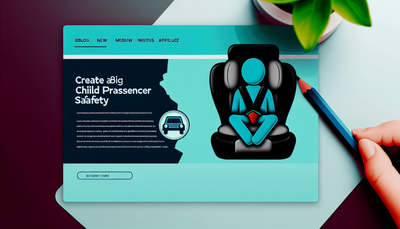How Recent Policy Changes Could Affect New Jersey Car Insurance Rates

How Recent Policy Changes Could Affect New Jersey Car Insurance Rates
New Jersey drivers, brace yourselves—your car insurance premiums may be heading in a new direction. In recent months, a series of policy changes have been introduced that could significantly reshape the insurance landscape across the Garden State. Whether you're a daily commuter, weekend road tripper, or occasional driver, understanding these updates is crucial to managing your costs and coverage.
🚗 Introduction: Why Policy Changes Matter
Car insurance isn't just a legal necessity—it's a financial safeguard. When lawmakers enact changes at the state level, it can have wide-reaching effects on how insurers calculate risk, determine premiums, and offer coverage options. For New Jersey residents, staying informed about these changes means avoiding unexpected rate hikes and being better prepared when it's time to renew or shop for new policies.
📜 What Are the New Policy Changes?
Let's take a closer look at some of the most impactful policy updates:
1. Minimum Coverage Requirements Increased
As of early 2024, New Jersey has raised the minimum liability coverage limits required by law. While this aims to offer better protection in the event of an accident, it also means higher base premiums for many drivers.
- Old Limits: $15,000/$30,000 for bodily injury
- New Limits: $25,000/$50,000 for bodily injury
This change ensures greater financial security but may come at a cost to drivers who previously opted for minimal coverage.
2. No-Fault Law Adjustments
New Jersey operates under a no-fault insurance system, meaning your own insurer pays for your injuries regardless of who caused the accident. Recent reforms are adjusting how medical benefits are calculated and reimbursed, which could influence premium structures and lead to cost shifts among providers.
3. Telematics and Usage-Based Incentives
Another noteworthy development is the expansion of telematics programs. Insurers are increasingly using driving behavior data—like speed, braking habits, and mileage—to personalize rates. A new state regulation now encourages transparency in how this data affects your insurance premiums, offering more clarity (and possible discounts) to safe drivers.
💰 Potential Effects on Insurance Rates
So, how do these changes translate into dollars and cents?
- Higher Premiums for Basic Policies: Drivers who carried only the minimum coverage will likely see increased rates due to the raised limits.
- More Opportunities for Discounts: Safe drivers willing to opt into telematics programs may benefit from lower premiums.
- Greater Emphasis on Shopping Around: With policies becoming more nuanced, comparison shopping is more important than ever.
🧠 Tips for Navigating the Changing Insurance Landscape
- Review Your Current Policy: Understand what coverage you currently have and how it stacks up against the new minimum requirements.
- Ask Your Insurer About Telematics: If you're confident in your driving habits, this could be a great way to save.
- Consider a Higher Deductible: If you have a good driving record, raising your deductible can reduce your monthly premium.
- Stay Informed: Follow local insurance news sources for updates on how legislation continues to evolve.
✅ Conclusion: Be Proactive, Not Reactive
Policy changes are a fact of life, but they don't have to catch you off guard. By staying informed and proactive, New Jersey drivers can adapt to the shifting insurance landscape and even find new opportunities to save. Always compare quotes, ask questions, and explore all available options to ensure you're getting the best coverage at the best price.
The road ahead may be changing—but with the right knowledge, you're in the driver's seat.
Stay tuned to our blog for the latest insurance news and expert tips to help you make smarter decisions about your coverage.







